Stefan Zweig's novels 📚
I wanna share with you Austrian writer Stefan Zweig's novels I have read. Firstly, I'll share 5 of them and then I'm gonna share the other 5 of them in next post. I am delighted to read the short and fictionally gripping stories of Stefan Zweig, who is a good storyteller. It may be good for you to read these understandable stories of Zweig, especially when your brain is tired from intellectually challenging novels.
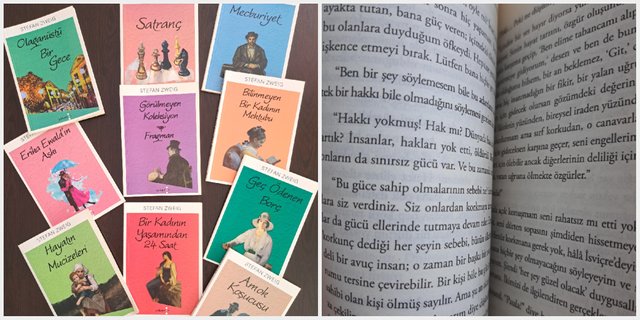
Also, if you have taken a break from reading, these stories can be a good start to start reading. Zweig tells us extraordinary stories of ordinary people. I think this is one of the reasons that attracts us to these novels. Btw, he's also a good researcher, but I haven't read any of his research novels yet.
1. Fantastic Night (Olağanüstü Bir Gece)
This is the story of a transformative experience in the increasingly uninterested routine life of a bourgeois. After a spontaneous "crime" at a horse race, the story starts. As the day transforms into night, he explores a world of newfound sensations and experiences. This journey to the depths of his emotions leads to a spiritual awakening, challenging societal norms and igniting inner passions.
"Once a man has found himself there is nothing in this world that he can lose. And once he has understood the humanity in himself, he will understand all human beings." Stefan Zweig
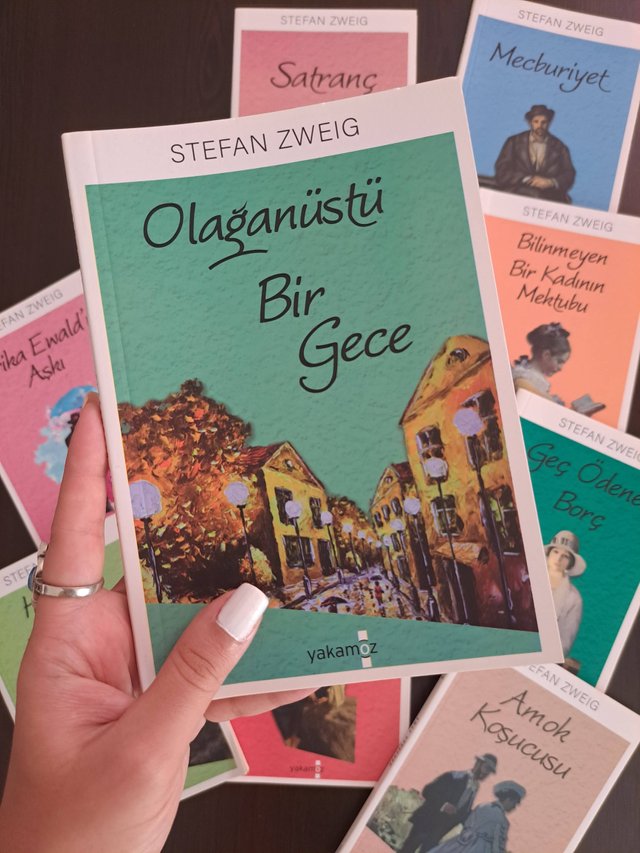
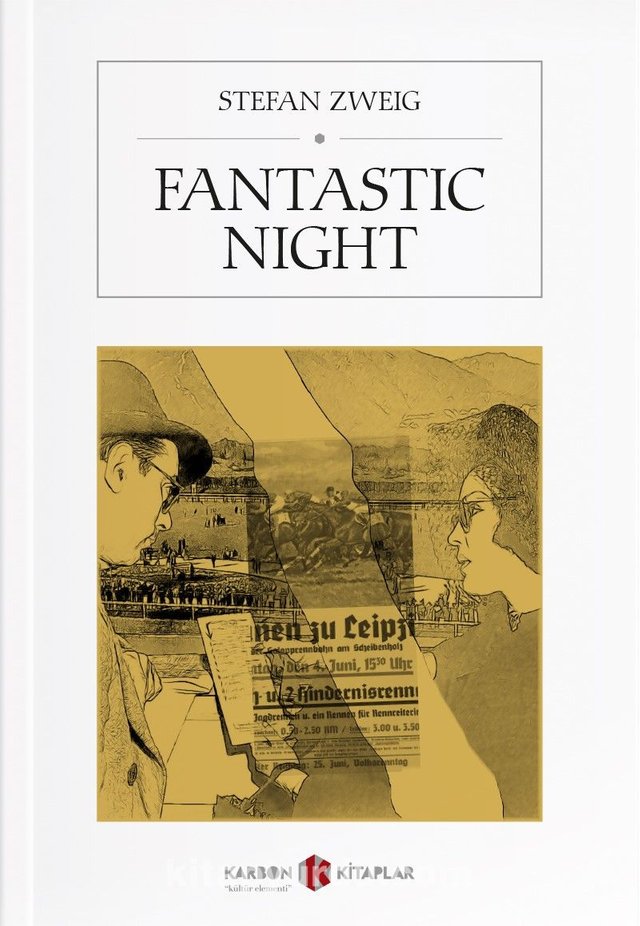
2. Chess Story (Satranç)
The story is a novel that revolves around a tense and intellectual battle of wits between two chess masters aboard an ocean liner. The novel explores themes of psychological warfare, the power of the mind, and the resilience of the human spirit in the face of trauma and confinement.
"They did nothing—other than subjecting us to complete nothingness. For, as is well known, nothing on earth puts more pressure on the human mind than nothing." Stefan Zweig
"We are happy when people/things conform and unhappy when they don't. People and events don't disappoint us, our models of reality do. It is my model of reality that determines my happiness or disappointments." Stefan Zweig
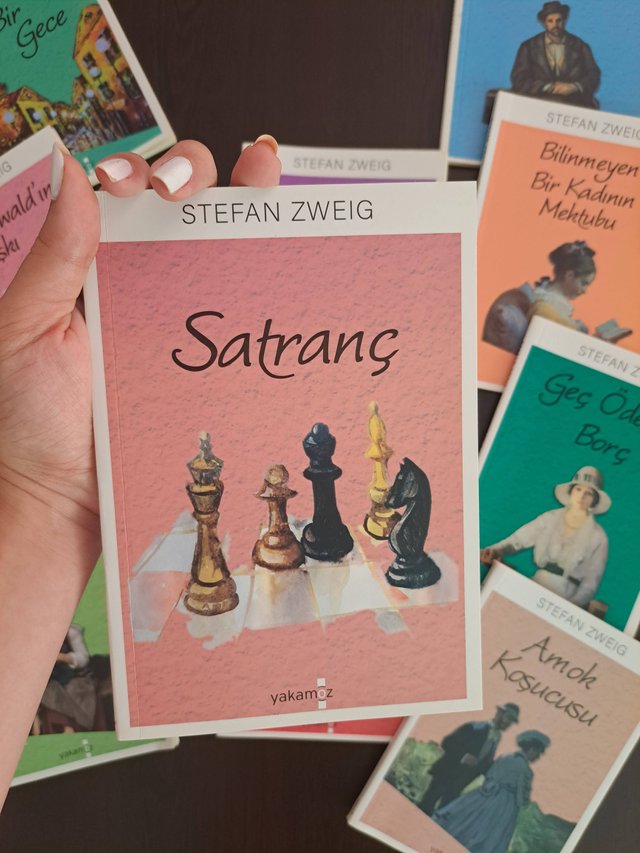
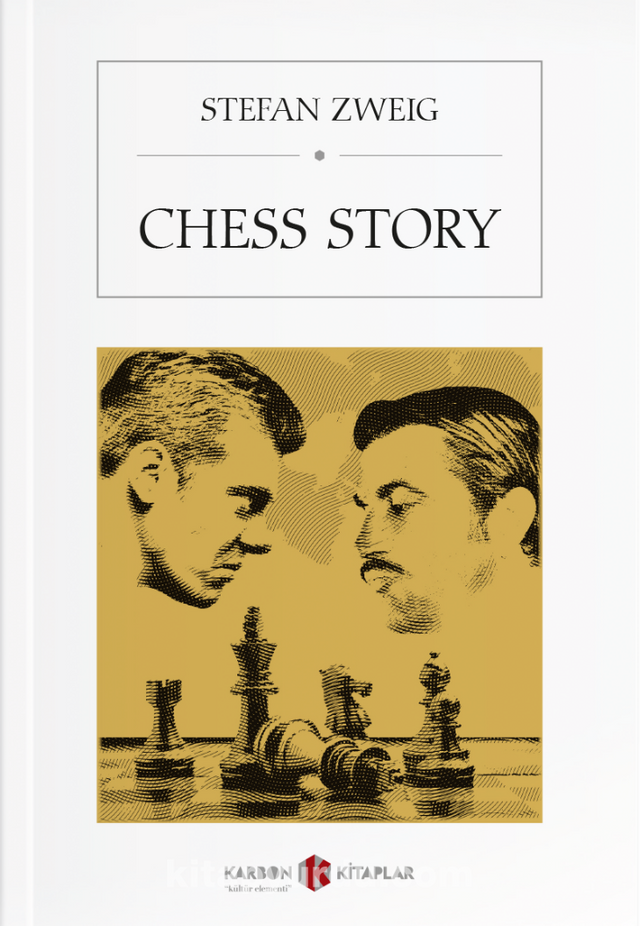
3. Der Zwang (Mecburiyet)
The main character is the painter Ferdinand, moves to Switzerland during the war. One day, when summoned to the consulate for an assessment of his fitness for duty, despite his wife's pleas to remain true to their anti-violence stance, he feels compelled to go. He is stuck between a sense of duty, his anti-war sentiments, and his love for his wife.
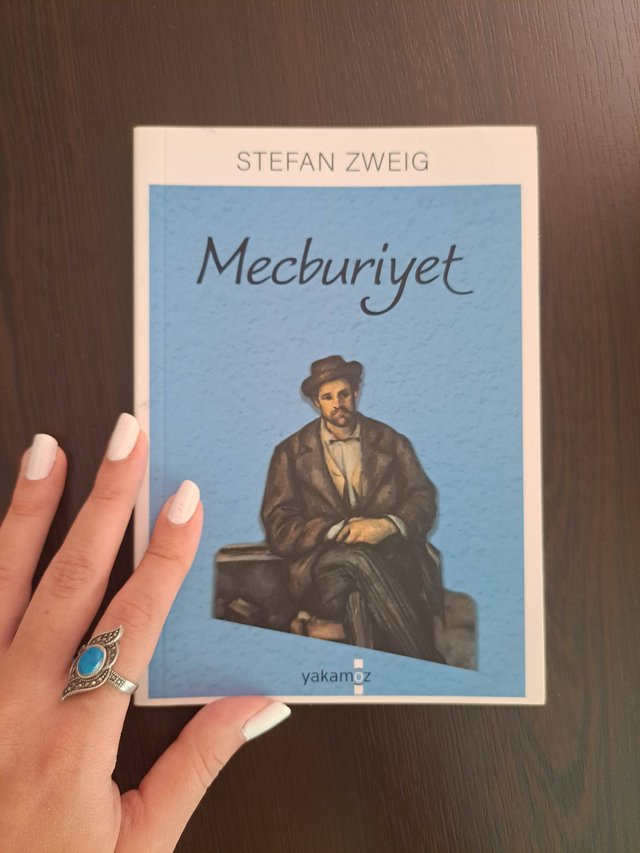
"Man can be a member of a people, but when his people go mad, he need not go mad either. You are just a number to them, a number, a tool, a soldier sent to his death senselessly and without conscience, whereas for me you are a living human being..." Stefan Zweig
4. The love of Erika Ewald (Erika Ewald'ın Aşkı)
The story of two young musicians, an apprehensive and shy pianist named Erika Ewald and a young man who extracts exquisite sounds from his violin. Their paths intersect at a concert, and as rehearsals and long walks follow, their friendship begins to evolve. This story invites the reader into the depths of a young woman's heart and soul turmoil.

"Every time she pours her heart out to him, she relaxes like a confession and she didn't care about the flow of life. "Stefan Zweig
"She believed that undermeaning of those lines were really intense emotions, but those feelings were nothing more than a reflection of her." Stefan Zweig
5. Letter from an Unknown Woman (Bilinmeyen Bir Kadının Mektubu)
At the center of the story is a long letter written by a woman to the man she loves. The letter, from an unknown woman, begins with the words, "To you, who never knew me," and describes her lifelong passion. The woman chooses to experience this great love in a strange and unusual way. While Zweig invites his readers to take a journey into the depths of human psychology, the concept of love wanders around the previously unexplored limits of this journey.
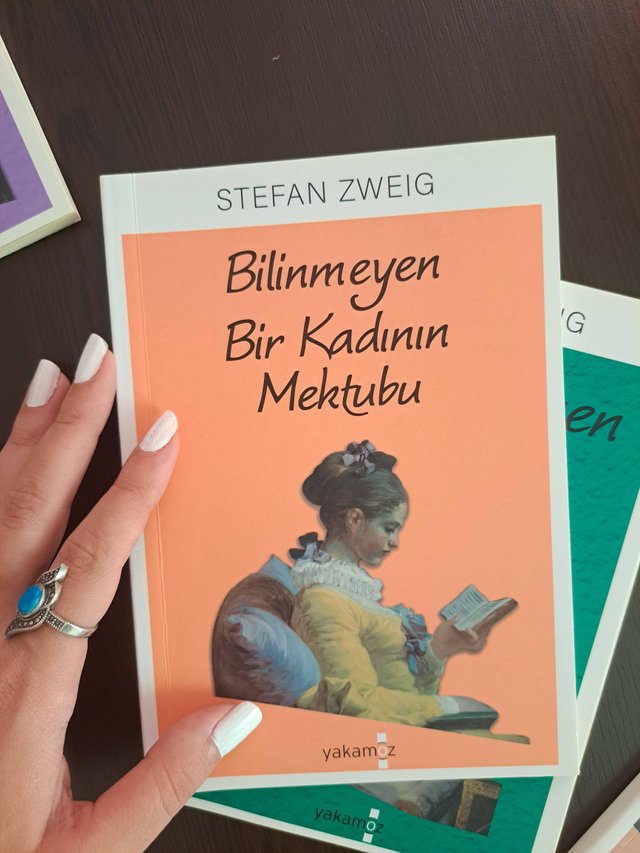
"All I know is that I shall be alone again. There is nothing more terrible than to be alone among human beings." Stefan Zweig
"But I see nothing miraculous about it. Nothing makes one as healthy as happiness, and there is no greater happiness than making someone else happy." Stefan Zweig
Reading Stefan Zweig's stories tell the intricate web of human emotions, desires, and inner conflicts. With his eloquent prose and profound understanding of the human psyche, Zweig invites us to explore the depths of characters' souls and the complexities of their relationships.
The fact that his novels cover a certain period such as the world wars feels like time travel and I like that. It is impressive to experience a period that I have not lived.
Did you read any of his novels?
Thank you 🤗
„Schachnovelle“ (Chess Story) is one of my favorite novels. I‘ve read it several times.
I have to disagree with you on this statement. I think Zweig is very profound and it is quite an intellectual (or philosophical or psychological) task to think about one or two paragraphs. But that shouldn't stop anyone from reading - Zweig narrates in a very entertaining way... :-))
It's great that you are introducing a German-speaking author - I read your contribution with a lot of joy and "Oh yes, I remember..."!
I read Chess Story years ago, it is the first novel of Zweig that I have read, now I have read it for the 2nd time. I wish I could read it in German in its mother tongue. It is definitely a very powerful piece of work with its chess plot, literary power, striking sentences, psychological messages, the struggle of man to be free and himself, and his honorable stance against oppression.
The story's strength is the aphorisms, thought, philosophy and interpretations in it. There are very effective sentences, a person's inner conversations, inner contradictions, his struggle with himself is a novel that I wish I could quote more. It is a wonderful work that tells how an oppressive administration crushes the human spirit and personality and pulls it into nothingness. I especially felt this in Mecburiyet (Der Zwang).
Actually, I may have expressed myself wrong, I said that because of its immersive and understandable, otherwise I didn't mean it in the sense of simple or cookie.
Stefan Zweig is one of the most read authors in Turkiye and his popularity continues. A Turkish writer had a comment about him that I really liked: "Zweig won't take you for a walk on the London asphalt, he won't take you to the glaciers of Alaska, he won't take a tour you on the steppes of Anatolia, Zweig will take you in the labyrinths of your mind, take you to the depths of your soul, psychology, and inner world." he said. Zweig talks about the torture of the soul, not the body, which allows to look at it from a very impressive perspective.
Thank you very much for your valuable comment and allowing me to make this statement with your comment 😊🌸
Wow, thanks so much for your such a thorough, in-depth response! If I wasn't on vacation, I would go into more detail, but now I can only say: The quote from the Turkish writer says it all... ;-)
Very interesting that Zweig is one of the most read German speaking authors in Turkey. I would not have thought now.
What about Günter Grass? That is my absolute favorite author - not only because he lived very close to my hometown. No, I already chose him when he wasn't yet a Nobel Prize winner.... ;-) I don't even know if Grass is so worth reading in translation. He played with his mother tongue like no other! A single sentence of his sometimes covers a whole book page and is still comprehensible. Ingenious!
TEAM 2
Congratulations! This post has been upvoted through Curation Team#2. We support quality posts , good comments anywhere and any tags.Thanks a lot 🤗
Your post is manually rewarded by the
World of Xpilar Community Curation Trail
STEEM AUTO OPERATED AND MAINTAINED BY XPILAR TEAM
https://steemit.com/~witnesses vote xpilar.witness
Thank you so much for your support 🌸
Nice to know about these novels.
(And have beautiful hand too..)